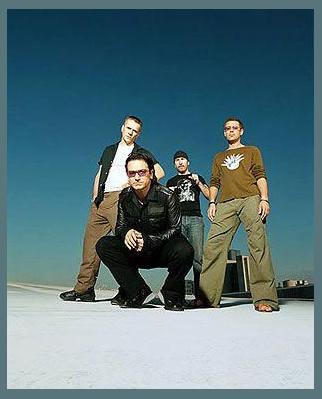 Obk
Obk
Obk: The Enigma Unraveled
Obk, the enigmatic Spanish electronic music duo, emerged in 1991, leaving an indelible mark on the music industry with their introspective lyrics and ethereal melodies.
Challenges and Controversies:
Obk's journey was not without its obstacles. In 2004, they parted ways with their long-time label, Warner Music Spain, citing creative differences. This setback forced them to embark on a period of independence, during which they struggled to maintain their momentum. However, their unwavering determination ultimately prevailed.
Another controversy that plagued Obk involved their song "El Cielo No Es Azul" (The Sky Is Not Blue). The song's lyrics were accused of promoting drug use, sparking a heated public debate. Despite the backlash, the song remains one of the band's most iconic anthems.
Discography:
Obk's discography is a testament to their diverse musicality. Their albums have showcased a fusion of electronic, pop, and rock elements, resulting in a captivating and eclectic sound.
* Anatomía de un Corazón Vacío (1994)
* Crónicas de un Sueño (1997)
* Fuera de Control (1999)
* Psicofónica (2001)
* El Cielo No Es Azul (2004)
* Anthropop (2006)
* Urbi et Orbi (2010)
Members:
The core members of Obk have been Jordi Sánchez (vocals) and Miguel Arjona (keyboards, production). Throughout their career, they have collaborated with a revolving cast of talented musicians, including:
* Toni Castell (bass)
* Carlos Martínez (drums)
* David Serra (guitar)
¿Quién Soy Yo?
Released in 1997, "¿Quién Soy Yo?" (Who Am I?) became Obk's breakout hit. The song's introspective lyrics explore the existential question of identity, resonating deeply with audiences. Its haunting melody and ethereal atmosphere have made it an enduring classic.
Legacy:
Obk's music has transcended generations, leaving a lasting impact on the Spanish music scene. Their ability to blend introspective lyrics with infectious melodies has created a timeless appeal that continues to captivate fans around the world.
Obk, the enigmatic Spanish electronic music duo, emerged in 1991, leaving an indelible mark on the music industry with their introspective lyrics and ethereal melodies.
Challenges and Controversies:
Obk's journey was not without its obstacles. In 2004, they parted ways with their long-time label, Warner Music Spain, citing creative differences. This setback forced them to embark on a period of independence, during which they struggled to maintain their momentum. However, their unwavering determination ultimately prevailed.
Another controversy that plagued Obk involved their song "El Cielo No Es Azul" (The Sky Is Not Blue). The song's lyrics were accused of promoting drug use, sparking a heated public debate. Despite the backlash, the song remains one of the band's most iconic anthems.
Discography:
Obk's discography is a testament to their diverse musicality. Their albums have showcased a fusion of electronic, pop, and rock elements, resulting in a captivating and eclectic sound.
* Anatomía de un Corazón Vacío (1994)
* Crónicas de un Sueño (1997)
* Fuera de Control (1999)
* Psicofónica (2001)
* El Cielo No Es Azul (2004)
* Anthropop (2006)
* Urbi et Orbi (2010)
Members:
The core members of Obk have been Jordi Sánchez (vocals) and Miguel Arjona (keyboards, production). Throughout their career, they have collaborated with a revolving cast of talented musicians, including:
* Toni Castell (bass)
* Carlos Martínez (drums)
* David Serra (guitar)
¿Quién Soy Yo?
Released in 1997, "¿Quién Soy Yo?" (Who Am I?) became Obk's breakout hit. The song's introspective lyrics explore the existential question of identity, resonating deeply with audiences. Its haunting melody and ethereal atmosphere have made it an enduring classic.
Legacy:
Obk's music has transcended generations, leaving a lasting impact on the Spanish music scene. Their ability to blend introspective lyrics with infectious melodies has created a timeless appeal that continues to captivate fans around the world.